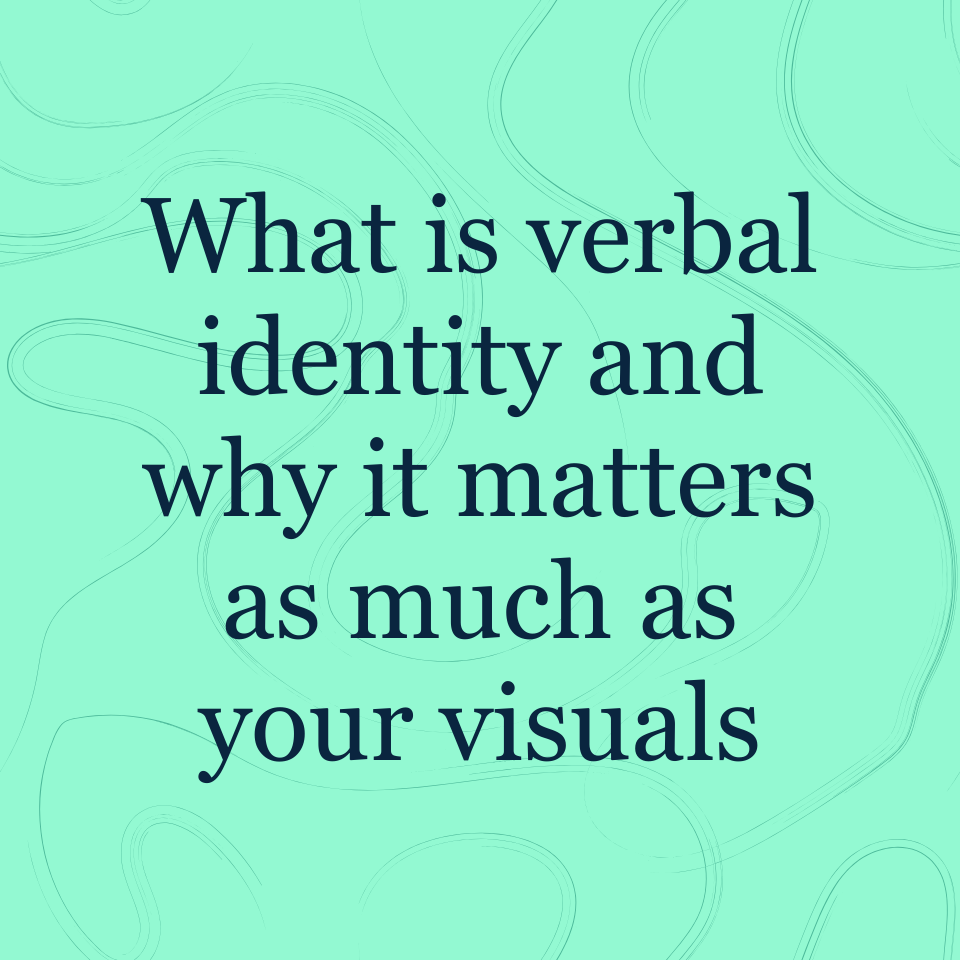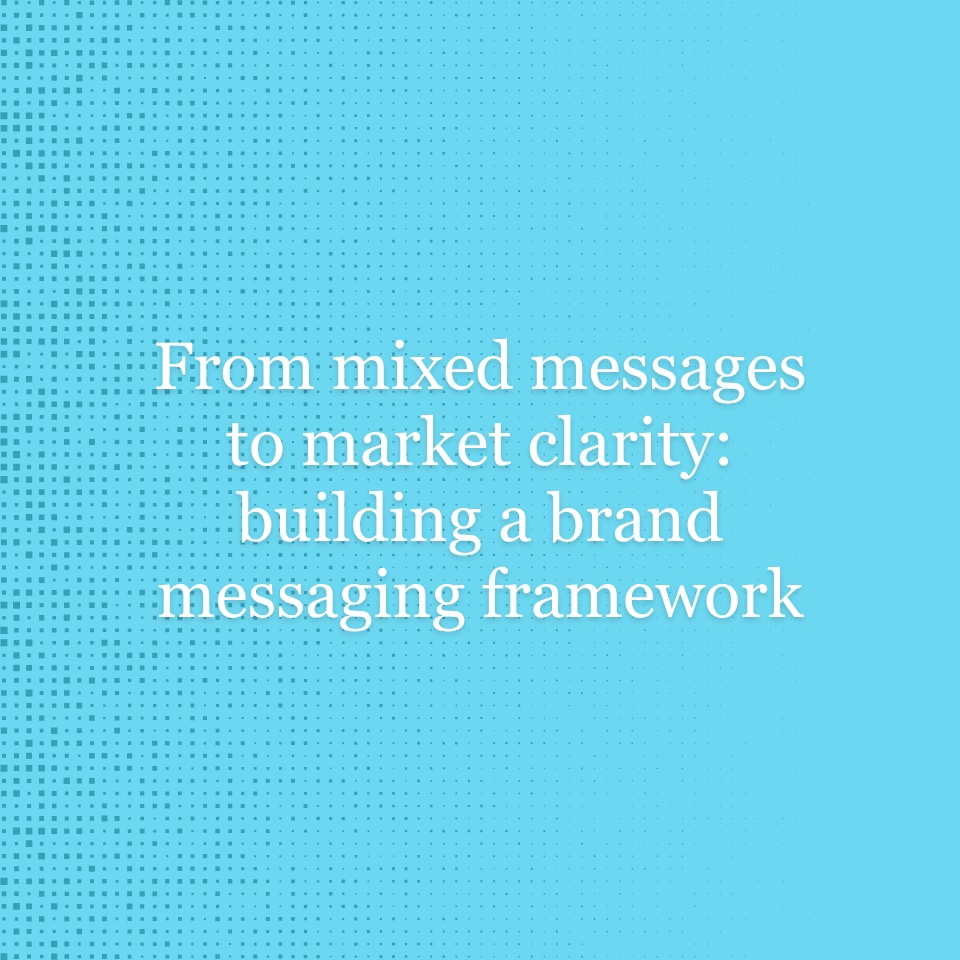In the wake of George Floyd’s murder and the resulting protests that have endured across the globe, brands have begun to speak out and take action against the racial injustice so deeply embedded into the fabric of our society.
On May 30th, Fast Company hosted a webinar entitled “The Brand as Activist.” This webinar was centered around a central question: Do brands have a place in the narrative around social justice issues? If so, what is their role and how can they best enact change? A few members of our Northbound team joined the webinar, and together compiled a list of takeaways - the primary one being that brands have a duty not only to speak out but to take action against racial injustice both inside their walls and out in the world. We have had conversations internally at Northbound about how we can apply these learnings to our own hiring processes, internal team culture, and client work. We realize that we have a long way to go, as a predominately white company within an industry that has historically excluded Black people.
Here are our 5 main takeaways from Fast Company’s “The Brand as Activist” webinar:
- Brands have a duty to speak out
- Brands must choose their words carefully
- Brands must turn their words into action
- Brands that are rooted in purpose are best equipped to take a stand
- Brands must strive for progress, not perfection
Panel of speakers, for reference:
Jonathan Mildenhall - Co-founder and CEO, TwentyFirstCenturyBrand
Linda Ong - Chief Culture Officer, Civic Entertainment Group
Rashad Robinson - President, Color Of Change
Forest Young - Global Principal, Wolff Olins
Stephanie Mehta - Editor-in-Chief, Fast Company
Brands have a duty to speak out
When an issue arises in our culture - whether it’s a pandemic or a social movement - brands are often faced with the question: do I say something on this or not? Unsurprisingly, the first question posed to the panel of guests on the webinar was “Do brands have a place in the narrative around social justice issues?” The answer was a resounding yes.
We were particularly struck by the comparison made between brands’ responses to COVID-19 and to Black Lives Matter. Brands didn’t seem to think twice before speaking out to their audiences about COVID-19, making generous donations to alleviate some of the damage done, and re-thinking their supply chains to support the cause. So why are brands hesitating to speak out about Black Lives Matter? Both are fundamentally human issues that will require each and every one of us to step up, speak out, and take action.
But why do brands have the responsibility to speak out? What we learned from this discussion was that it’s not just about brands’ role as cultural symbols. Jonathan spoke about how brands have begun to speak out when governments and other institutions have fallen short. Brands (especially large multi-million or billion dollar brands) have a level of power, influence, and visibility that can rival that of governmental institutions. These corporations also participate in - and profit from - a capitalistic society that has perpetuated systemic racism for decades. What we took away from this discussion was that brands’ power and influence and their complicity in racism requires them to acknowledge their complicity and make a plan for how to be allies moving forward, By doing so, they set an example for other brands and for their customers.
Brands must choose their words carefully
So, we have established that brands are obligated to speak out aroundthe issue of racial injustice. But what we also learned is that when they do speak out, brands must choose their words carefully and intentionally. In Forest’s words, “Brands must be responsive, but also responsible.”
Choosing the right words when you do choose to speak is important, so you don’t unintentionally perpetuate racist ideas in an effort to dismantle them. One particular example from Rashad caught our attention. When communicating about racial inequality in the financial sector, for example, instead of saying “Black people are less likely to get loans from banks” you should say “Banks are less likely to give loans to Black people.” Both statements communicate the same message around the likelihood of a Black person getting a loan from a bank, but the second version accurately places blame on the institution, rather than the person. This is a small nuance in phrasing, but has a huge impact.
Secondly, before making a statement, it is crucial for a brand to first understand how they have been complicit in racial injustice. Brands cannot commit to changing their practices if they do not understand how their existence has perpetuated racism in our society. Once a brand has done the work to understand their complicity, they are able to 1) identify what steps they can take to be actively-antiracist and 2) make a statement that acknowledges its complicity and lays out clear next steps for how they will confront it and make a change.
This brings us to the third (and probably most important) takeaway from the webinar...
Brands must turn their words into action
If we had to sum up this webinar in a single phrase, it would be: actions speak louder than words. Or maybe even: put your money where your mouth is. Rashad’s words stuck with us: "We need companies that aren't just allies, but co-conspirators in the fight for justice." And being a co-conspirator requires sustained action. The panelists in the discussion spoke about how issuing a statement that “Black Lives Matter” without a commitment to action isn’t just “not helpful.” It is harmful - it is capitalizing on a movement for monetary gain, without actually supporting the movement itself.
Rashad spoke about his experience as the President of Color of Change, a racial justice organization dedicated to helping “decision-makers in corporations and government to create a more human and less hostile world for Black people in America.” He shared the unfortunate reality that brands only take true action towards solving a problem when they feel nervous enough that they will get in trouble if they don’t do something. During this time in history, brands are feeling that pressure, both from their employees and their customers. And it is up to us - as a society and as employees of those brands -to hold them accountable to the promises they make during this tide shift. . What we learned from this discussion is that this isn’t just about doing the right thing moving forward. It is about righting a wrong that has already been done.
We were heartened by Rashad’s sentiment that “once companies come out of the closet [to take action against racism] they can’t go back in.” With so many of the country’s CEOs speaking out, making public commitments to creating a more equitable workplace, and making large donations to organizations fighting racial injustice, Rashad expressed hope that we have started a cycle of action and accountability that will be sustained into the future
Brands that are rooted in purpose are best equipped to take a stand
As a brand strategy agency founded on the power of purpose, we know firsthand how having a clear brand purpose statement can serve as a North Star for how a brand acts, speaks, and makes decisions. Having a guiding principle (or set of principles) for what you stand for as a brand can help your organization respond to any issue, and do so in a way that is authentic to who you are.
We found the example of how Airbnb acted on its brand purpose to quell racism on its platform to be very compelling - a point that Jonathan (former CMO of Arbnb) spoke to during the webinar. Airbnb’s mission is to create a world where people can “Belong Anywhere.” By giving people the opportunity to stay in a home (vs. a hotel) while travelling, people could come closer to experiencing what it's really like to be a local - to belong - in a foreign place. This core mission was threatened when reports of widespread racial discrimination on Airbnb came out (perpetrated both by guests and by hosts). It quickly became clear that people of color were not given the opportunity to “belong anywhere,” as Airbnb hosts were found to deny BIPOC lodging and/or treat them unfairly during their stay.
In response to these reports, Airbnb conducted an in-depth investigation of its platform and its corporate culture to identify where progress needed to be made. In addition to dedicating a full team of developers and data scientists to root out racial bias on the platform, Airbnb created a new community commitment that showcases how their commitment to fostering belongingness continues to drive their efforts to create a more welcoming community:
“We believe that no matter who you are, where you are from, or where you travel, you should be able to belong in the Airbnb community. By joining this community, you commit to treat all fellow members of this community, regardless of race, religion, national origin, disability, sex, gender identity, sexual orientation or age, with respect, and without judgment or bias.”
Brands must strive for progress, not perfection
Our final takeaway is around the pursuit of “perfection” that causes many individuals and brands to shy away from speaking about sensitive topics like racial injustice. In a time where silence is so dangerous, brands must ensure that they aren’t getting so caught up in saying the right thing that they don’t say anything at all. So instead of spending days (or weeks) crafting the perfect one-liner, brands should join the conversation from the beginning and be open to learning from their mistakes. We felt that this quote from Jonathan sums it up quite nicely:
"Brands are paralyzed because they think they have to be perfect. But society isn't perfect. No individual lives a perfect existence. So, I encourage brands to try to lean into their imperfections. If their intentions are perceived as honorable, then society will forgive their imperfections."
In other words, if you (as a brand or as an individual) wait until you feel you have identified the perfect response - you’re doing yourself and society a disservice. From Jonathan’s perspective, the longer you wait to deliberate and perfect your statement, the more likely it is to feel like you're just doing it to impact your perceptions. That’s not to say that you shouldn’t do your research, think deeply, and commit yourself to action before making a statement. It just means that even those of us with the best intentions will make mistakes. We - as brands and as individuals - must get comfortable with getting uncomfortable when called out for a slip up. We cannot let the fear of imperfection keep us from speaking out against the mistreatment of Black people in our country that has persisted far too long, under our watch.
As Linda so eloquently stated, “A brand needs to take a high risk with high generosity and high humility.” You will make mistakes. Be open to accepting criticism, improving yourself, and moving forward. It truly is the least we can do.





